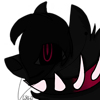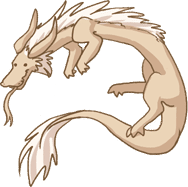Vardaineil Malithiel wrote:
|- Full Name -|
Haenaeiel Arwen Galdriel
|- Name Goes By -|
Haenaeiel
~Meaning~
Miracle
|- Nickname(s) -|
Hannah
~Meaning~
Grace
|- Astrological Sign -|
Capricorn
|- Canon -|
Dragon Age
|- Age -|
Twenty-seven (27)
|- Race -|
Half - Elf / Half - Human
|- Eye Color -|
Brown
|- Hair Color-|
Blonde
~Type Of Hair~
Thick and curly
|- Typical Hairstyle -|
Worn lose. Occasionally in a bun.
|- Height -|
5'2''
|- Weight -|
124 lbs
|- Skin Color -|
Pale apricot
|- Distinguishing Marks -|
Freckles
|- Accent -|
Irish
|- Physical Disabilities -|
Not very strong
|- Physical Abilities -|
Sharp hearing and good eye-sight.
|- Mana -|
Haenaeiel's mana is just a simple floating sphere of light. It has the element life
|- Workshop -|
Workshop 1
|- Room-mate -|
She is not aware of one
|- Special Facts -|
A humanoid race, elves are typically shorter than their human companions and have a slender, lithe build and pointed ears. In Ferelden, Free Marches, and many other parts of Thedas, elves are second-class citizens, often referred to by humans as "knife ears" as a racial slur. Long ago, the elves were the dominant race on Thedas, and had lived in a civilization based on nature and magic. After its fall to the Tevinter Imperium and their generations of slavery however, the elves had lost most of their cultural heritage and identity. The same thing happened to their second homeland, the Dales much later. Since then, their few numbers have been scattered all over Thedas in either forests as primitive nomads or in cities as impoverished outcasts, with little hope of recovery for their culture or their race. Today, they're a people associated with poverty, crime, barbarism, and are often used as scapegoats for humanity's difficulties. Though most of the elven language has been lost, they once referred to themselves as "elvhen" or "the people".
Elves of Thedas live no longer than humans, but elven legends state that this was not always the case. Once, they say, they were an immortal and magically talented race that lived in harmony with the natural world and followed the elven pantheon. The first shemlen (a term meaning "quick children" that was used by the ancient elves to describe the humans and denote their shorter lives) they encountered were tribals who came south from Par Vollen. The ancient elves grew friendly with humans, but soon discovered that breeding with humans produced only human babies, while exposure to the "quick children" caused the elves to quicken themselves. For the first time, elves began to age and die.
In fear, the elves withdrew from human contact. Unfortunately, the human tribals gave way to the Tevinter Imperium, who viewed the elves' isolation as hostility and declared war in 981 Ancient. Elvhenan, the elven homeland, was besieged for six years, but was invaded when the magisters used blood magic to sink the elves capital city of Arlathan into the ground, never to be seen again. As a result, elven survivors were enslaved and evidence of their culture were lost. The elven calendar, established with the formation of Arlathan, was then banned by the Imperium. Although its existence is recognized by modern scholars outside of Tevinter, knowledge of how elves marked the passage of time beyond a few events is now forgotten. The elven people lost their immortality and their gods forsook them. The exact details of the war are lost to history, though artifacts found in Imperium ruins within the Brecilian Forest suggest Elvhenan was looted, or that some elves joined the Imperium bringing artifacts with them.
Elven slaves, under Shartan's leadership, were among the most fervent supporters of the prophetess Andraste's uprising against the Tevinter Imperium. The elves joined Andraste in her quest to depose the Tevinter magisters in 1020 TE, and they were rewarded for their loyalty by being granted land in the Dales upon Andraste's victory. They called their journey to their new homeland the Long Walk. Many perished on the way, some even turned back to the Tevinter, but most continued the walk.
In the Dales, the elves created a second elven homeland and began to restore the lost lore and culture of Elvhenan, including the worship of their former gods. They build their first city, Halamshiral ("end of the journey"), and became isolated from other races. The borders were guarded by an order named the Emerald Knights who were watching for trouble from humans.For some years, humans loyal to Andraste's memory respected their elven allies. But over the generations and as the Chant of Light and the religion of the Maker spread throughout human nations, the diplomatic relationships between the Dales and surrounding human nations turned cold, as the elves refused to be converted. Humans claim the war with the elves began when a small elven raiding party attacked the nearby human village of Red Crossing in 2:9 Glory, leading to the Chantry eventually calling an Exalted March against the elves, claiming they had been attacked by the Dales.The Dalish claim templars invaded the Dales after the elves kicked out Chantry missionaries from their sovereign territory.
As the Dales fell, the elves were forced to abandon their second homeland, and their culture was torn even further from them. Many elves accepted the terms of their human aggressors, going to live in alienages inside human cities and worshipping the Maker. Those elves who resisted became the nomadic Dalish, maintaining the worship of the elven gods and continuing their efforts to recover the lost culture of Elvhenan.
The elven language, or Elvish, was largely lost when Elvhenan fell and its people were enslaved. When the elves settled their second homeland, the Dales, they aimed to restore their lost language and lore, but the Dales fell to an Exalted March. The Elvish of the Dragon Age is thus a fragmented remnant, a few words that are thrown into conversation rather than a working language used to conduct everyday life. The Dalish Elves, self-appointed custodians of the elven language and lore, use more Elvish than their City Elf brethren. Living among humans, the City Elves now retain only a few old Elvish words whose origin is almost forgotten, such as "shem"—derived from "shemlen", or "quickling", the old elven term for humans—and "hahren"—the leader of an alienage, meaning "elder" in Elvish.
The Dalish have more of the language. They are more capable of forming whole phrases and sentences, but the language is still fragmented and very incomplete, even to them. It includes the word da'len, which means "little child", and andaran atish'an, which is a greeting to friends and fellow Dalish. Serannas is thanks, while ma serannas is "my thanks" or "many thanks". Aneth ara is an informal greeting often used among friends. Dareth shiral is a way of saying good-bye.
|- Hometown -|
Denerium/Ferelden
|- Religion -|
Non-religious
|- History -|
Haenaeiel is a half-elf, the daughter of a elven father and a human mother. Her father worked the modest job of a farmhand, her mother a seamstress. The pair already had two twin sons around the age of 8 when the news was made known. Marli, the mother, was expecting another child. Both the mother and the father were elated at the news of another family member.
Haenaeiel was born earlier then expected, it was sudden. There was hardly any time to get word to the healer. At the end of it all, only the child survived the birth; Marli died of a hemorrhage. The father and his sons were distraught with their lose, but at least the daughter lived. After quite a bit of trying to arrange thing, life carried on.
The father raised his children alone, thanks to a kind lady whom provided nourishment, Haenaeiel lived. She was, as of this time, five years of age. Haenaeiel’s brothers were a great help to their father when it came to taking care of the daughter. However, trouble began to arise as the daughter began to show promise with the magical arts. Her father new what this could mean, that is daughter would likely be taken from him. He did all he could to keep the knowledge of his daughter talent hidden. This only lasted for three years.
It was sad day when the templars came. Haenaeiel’s father all but got on his knees and begged for them not to take his daughter. Still, the daughter was taken to the Circle of Magi. The Circle was a place where Haenaeiel was to learn how to properly use and control her gift, however, it was better known as a prison.
|- Greatest fear -|
Giving into demons that prey on mages.
|- Worst thing that could happen to her? -|
Becomeing a bloodmage/giving into the temptations of demons.
|- Priorities -|
Helping others
|- How she feels about herself -|
Haenaeiel things rather well of herself, hates her magic though.
|- Failures she would be embarrassed to have others know of -|
Being a mage, it is not an acceptable thing in her world.
|- Biggest regret -|
-
|- Biggest Accomplishment -|
Becoming a spirit healer.
|- Greatest source of strength in personality -|
Haenaeiel is very level headed and is one to stay rather calm.
|- Greatest source weakness in personality -|
She is very emotional and is one to worry a great deal
|- Soft spot -|
-
|- Optimist or Pessimist -|
Optimist
|- Introvert or extrovert -|
Extrovert
|- Drives and motivations -|
Knowledge is her greatest motivation. She strives for great wisdom.
|- Extremely skilled at -|
Healing
|- Extremely unskilled at -|
Dealing with others.
|- Mother -|
Marli
|- Father -|
Unnamed elven farmer
|- Siblings -|
2 older brothers
|- Husband -|
None at said time
|- Children -|
None at said time
|- Secretly admires -|
No one at said time.
|- Most influenced by -|
Magic
|- Other -|
Atelier Haenaeiel
Alchemists of Itheria [[Temporary Hiatus]]
Forum rules
Remember, all content must remain child-friendly at all times!
Users breaking this rule by using foul language, roleplaying explicit sexual scenes, excessive violence/torture, non-consensual 'romance', or other adult themes may be banned.
Please remember to read all the rules stickied at the top of the board before participating in any roleplays.
Remember, all content must remain child-friendly at all times!
Users breaking this rule by using foul language, roleplaying explicit sexual scenes, excessive violence/torture, non-consensual 'romance', or other adult themes may be banned.
Please remember to read all the rules stickied at the top of the board before participating in any roleplays.
Re: Atelier You: Alchemists of Itheria [[All-fandom RP OPEN]
Last edited by Nella-Rasa on Mon May 06, 2013 9:30 am, edited 2 times in total.
Quitting
-

Nella-Rasa - Posts: 3083
- Joined: Sat Apr 21, 2012 5:11 am
- My pets
- My items
- My wishlist
- My gallery
- My scenes
- My dressups
- Trade with me
Re: Atelier You: Alchemists of Itheria [[All-fandom RP OPEN]
I will edit my post as soon as I can, and I might also make a male character, possibly filling in one of the teacher positions..}
-

Terox - Posts: 5538
- Joined: Wed May 23, 2012 3:51 am
- My pets
- My items
- My wishlist
- My gallery
- My scenes
- My dressups
- Trade with me
Re: Atelier You: Alchemists of Itheria [[All-fandom RP OPEN]
((Questions as to what elements are acceptable. Sense my other character in most other roleplays (and in her canon) is a spirit healer/white mage; I wanted to know what element you thought it best for her to have.)
Quitting
-

Nella-Rasa - Posts: 3083
- Joined: Sat Apr 21, 2012 5:11 am
- My pets
- My items
- My wishlist
- My gallery
- My scenes
- My dressups
- Trade with me
Re: Atelier You: Alchemists of Itheria [[All-fandom RP OPEN]
((For healing I'd say something along the lines of light or wind. Canonically one character with a wind mana does a lot of healing, but I'd say light too. Or earth, even. Or even a mana of life. Completely up to you. Accepted though ^_^))
don't look for me, i'm already gone
-

hiding... - Posts: 1082
- Joined: Tue Feb 26, 2013 4:35 pm
- My pets
- My items
- My wishlist
- My gallery
- My scenes
- My dressups
- Trade with me
Re: Atelier You: Alchemists of Itheria [[All-fandom RP OPEN]
((Alright; thank you. I await the roleplay to begin.))
Quitting
-

Nella-Rasa - Posts: 3083
- Joined: Sat Apr 21, 2012 5:11 am
- My pets
- My items
- My wishlist
- My gallery
- My scenes
- My dressups
- Trade with me
Re: Atelier You: Alchemists of Itheria [[All-fandom RP OPEN]
I edited my forms and added a new one for approval}
-

Terox - Posts: 5538
- Joined: Wed May 23, 2012 3:51 am
- My pets
- My items
- My wishlist
- My gallery
- My scenes
- My dressups
- Trade with me
-

Nella-Rasa - Posts: 3083
- Joined: Sat Apr 21, 2012 5:11 am
- My pets
- My items
- My wishlist
- My gallery
- My scenes
- My dressups
- Trade with me
Re: Atelier You: Alchemists of Itheria [[All-fandom RP OPEN]
((Alright, deputy headmaster is you Stormy! I'll probably talk to you about things out of the thread so you can help me  It'll be arranged that you know the headmaster, obviously. I'll be making the starting post now after I update the front page. Thank you all for joining, can't wait to RP with you. ^_^))
It'll be arranged that you know the headmaster, obviously. I'll be making the starting post now after I update the front page. Thank you all for joining, can't wait to RP with you. ^_^))
don't look for me, i'm already gone
-

hiding... - Posts: 1082
- Joined: Tue Feb 26, 2013 4:35 pm
- My pets
- My items
- My wishlist
- My gallery
- My scenes
- My dressups
- Trade with me
Re: Atelier You: Alchemists of Itheria [[All-fandom RP OPEN]
Name:Yuuki Asuna[Goes by Asuna, if you are close enough]
Age: 17
Gender:Female
Species: Part Human part Elf Part Fairy
Canon: Sword Art Online[SAO]
Appearance: [Most of the time she is in her human form]
Personality: Asuna is a kind and helpful young woman, who cannot abandon another in trouble. Asuna is also somewhat proud and is not afraid to get physical with those that challenge her authority or brag about her abilities such as Cooking. She isn't afraid to act out on her own and will take matters in her own hands from time to time. Asuna,is someone who can be controlled by her emotions many times. She also can't handle the deaths of others well and will lose control.In ALO[Alpheim Online], Asuna's personality hasn't changed a bit except she's not as proud as she was in SAO. Her personality begins to develop further after meeting Yuuki. Seeing how, despite knowing she will die, Yuuki can still move forward, Asuna takes after her and resolves after her new friend's death to keep moving forward.
Mana: A little fairy by the name of Yui. She doesnt talk that much though. The element of Light
Workshop:5
Roommate:---
Likes:Cooking, making friends, swords, sword fights, her rapier called,Lambent Light
Dislikes:People who are mean, video games[if you read her history, youll know why]
Special Facts: She can fly, use swords, heal others, and cook very well
Other:[how this all happened to Asuna.] Asuna was just a normal girl at first.She logged in SAO after she borrowed her brother's NerveGear when he had a sudden business trip and could not play on the opening day. When she discovered all the players were trapped in SAO she held herself up inside her room in «Starting City» for a week, before resolving to take fate into her own hands. This led her to kill monsters at an incredible rate and level up in a quick fashion, even risking her life in the process. I got all my info from the SAO wiki page. From my knowledge, all of it seems to be in tact.
Atelier Yuuki [Asuna] [[Derp]]
Age: 17
Gender:Female
Species: Part Human part Elf Part Fairy
Canon: Sword Art Online[SAO]
Appearance: [Most of the time she is in her human form]
Personality: Asuna is a kind and helpful young woman, who cannot abandon another in trouble. Asuna is also somewhat proud and is not afraid to get physical with those that challenge her authority or brag about her abilities such as Cooking. She isn't afraid to act out on her own and will take matters in her own hands from time to time. Asuna,is someone who can be controlled by her emotions many times. She also can't handle the deaths of others well and will lose control.In ALO[Alpheim Online], Asuna's personality hasn't changed a bit except she's not as proud as she was in SAO. Her personality begins to develop further after meeting Yuuki. Seeing how, despite knowing she will die, Yuuki can still move forward, Asuna takes after her and resolves after her new friend's death to keep moving forward.
Mana: A little fairy by the name of Yui. She doesnt talk that much though. The element of Light
Workshop:5
Roommate:---
Likes:Cooking, making friends, swords, sword fights, her rapier called,Lambent Light
Dislikes:People who are mean, video games[if you read her history, youll know why]
Special Facts: She can fly, use swords, heal others, and cook very well
Other:[how this all happened to Asuna.] Asuna was just a normal girl at first.She logged in SAO after she borrowed her brother's NerveGear when he had a sudden business trip and could not play on the opening day. When she discovered all the players were trapped in SAO she held herself up inside her room in «Starting City» for a week, before resolving to take fate into her own hands. This led her to kill monsters at an incredible rate and level up in a quick fashion, even risking her life in the process. I got all my info from the SAO wiki page. From my knowledge, all of it seems to be in tact.
Atelier Yuuki [Asuna] [[Derp]]
Last edited by Killua Godspeed <3 on Mon May 06, 2013 3:29 pm, edited 1 time in total.

THIS IS SO BEAUTIFUL, I'M CRYING T^T
WORK IN PROGRESS UNTIL MORE GIFS COME OUT!
-

Killua Godspeed <3 - Posts: 37176
- Joined: Thu Feb 16, 2012 11:08 am
- My pets
- My items
- My wishlist
- My gallery
- My scenes
- My dressups
- Trade with me
Re: Atelier You: Alchemists of Itheria [[All-fandom RP OPEN]
((You'll be accepted once you add the part to "Other" that you forgot  Yui also needs an element.))
Yui also needs an element.))
don't look for me, i'm already gone
-

hiding... - Posts: 1082
- Joined: Tue Feb 26, 2013 4:35 pm
- My pets
- My items
- My wishlist
- My gallery
- My scenes
- My dressups
- Trade with me
Who is online
Users browsing this forum: No registered users and 5 guests







